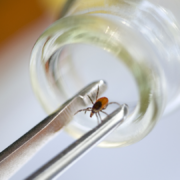Greenwashing: What It Is & How to Spot It
As consumers, every decision we make matters—for our health and the health of our planet. And the decisions we make further perpetuate how products are produced (ethically, sustainably, environmentally consciously, etc.). It is really consumers, not corporations, that hold the real power to influence change (e.g., reduce our carbon footprint and greenhouse emissions).
Companies, big and small, domestic and multinational, make their decisions based on consumer demand. If we demand (via our purchases) green products, companies that want to compete successfully for our dollars will abide.
The simple solution, then, is to seek out and only support brands or items that bare the mark of being eco-friendly, sustainably sourced, green, natural, or biodegradable, right? The answer would be yes if it weren’t for greenwashing.
What Is Greenwashing?
Greenwashing is a form of misinformation or lying about being green or using eco-labels in order to attract consumers trying to make choices that are better for the environment. Based on the 2022 Business of Sustainability Index, of 1,000 U.S. adults surveyed, 66% stated they would pay more for sustainable products. This clearly says that more than half of us want to support brands that are doing good for Mother Earth. So as a business, how do you out-compete rival businesses? You go green or at least say you are by using green marketing techniques.
Not all companies are so conniving, though. Greenwashing is a marketing tactic that spans a spectrum of actions; it’s not so black and white and not always so ill-intentioned. However, a general consistency in the definition is making an environmental claim that is ultimately misleading or unsubstantiated.
Greenwashing can be a flat-out lie, like claiming to be “certified organic” with no actual third-party certification, or a ploy to distract (i.e., donating 1% of profits to a reforestation project but still employing environmentally destructive practices in sourcing, production, or other facets of the enterprise).
3 Potential Signs of Greenwashing
The health of our planet and our individual health are inextricably linked. It would benefit us all to only buy and use products that don’t perpetuate current and looming environmental and climate change issues, not just for Nature’s sake but for our own too. To do so, one of the first steps to being an environmentally conscious consumer is to know how to spot false claims.
Vague Buzzwords
Common potential greenwashing buzzwords include biodegradable, clean, eco-friendly, earth-friendly, green (e.g., green beauty, green cleaning products, green cosmetics), natural, organic, and sustainable. When you come across any of these descriptors, ask, “how so?” or “how specifically?” Is there an answer available to this question? A red flag that you might be getting greenwashed is when these buzzwords are used very vaguely.
Example of greenwashing: Biodegradable kitchen spray bottle
What makes the bottle different from a standard plastic bottle? Is the entire bottle biodegradable or just part of it; the label, the nozzle, the straw, etc.? How long until the entire bottle biodegrades? Will it biodegrade naturally? Is the biodegrading process clean?
The term “biodegradable” without explanation is vague. In truth, eventually, everything will biodegrade, but as we know with plastic, that could take hundreds of years and include the production of microplastics and the release of harmful chemicals in the process. Stating that a product is biodegradable should mean that it will break down relatively quickly, naturally, and without releasing toxic chemicals or fragments.
Claims Without Proof
If you are trying to be an Earth-friendly consumer, seeing a label that reads “eco-friendly” will surely catch your eye and will likely secure your dollar over a competing product with no such visible claim. Slapping on a sticker that says “certified organic” or “sustainably sourced” must be issued by a reputable independent third-party certifier like EcoLogo or Green Seal to be an environmentally friendly product. Believe it or not, some brands will tack on these catchy and feel-good buzzwords without being able to prove they are true.
To avoid being greenwashed, sometimes you have to do a little investigating. Fortunately, those who are telling the truth will make it easy to find legitimate proof of their claims.
Reputable certifications:
- Certified B Corporation
- Climate Neutral
- Cradle to Cradle Certified
- EWG Verified
- Fairtrade International
- Forest Stewardship Council
- Global Organic Textile Standard
- Leaping Bunny
- Rainforest Alliance Certified
Distracting Offsets
Sometimes a company will advertise its philanthropic actions on its actual product, like “one tree planted for every purchase,” or “1% of profits donated to (this or that) NGO”. Sometimes this type of advertisement is merely used to distract consumers from a brand or product’s otherwise not environmentally friendly practices (this is one of the six sins of greenwashing). Donating 1% of profits is undoubtedly awesome, but that shouldn’t give a company license to carry out business practices that harm Mother Earth and, in turn, our health.

Key Takeaway to Avoid Greenwashing
Companies that are truthfully doing the right things for the planet (on a big or small scale) will make it very clear and easy to verify that their claims are valid. As mentioned before, an extra step of doing a little background research may be required to ensure that the product(s) you are planning to buy (and continue to buy) are actually eco-friendly, organic, or sustainable. But the effort will be worth it in the long run.
Bonus: Health and Wellness Brands We Love
Explore Innovative Medicine’s library of product reviews here.
Disclaimer: The statements made in this article have not been evaluated by the Food and Drug Administration. Any products or treatments mentioned are not intended to diagnose, treat, cure, or prevent any disease. Please consult a licensed medical practitioner for medical advice.
At Innovative Medicine, we believe in transparency. We want you to know that we may participate in affiliate advertising programs pertaining to products mentioned herein.
See how we can help you restore complete health of body, mind & spirit.
Join our mailing list and receive exclusive offers + information!







Leave a Reply
Want to join the discussion?Feel free to contribute!